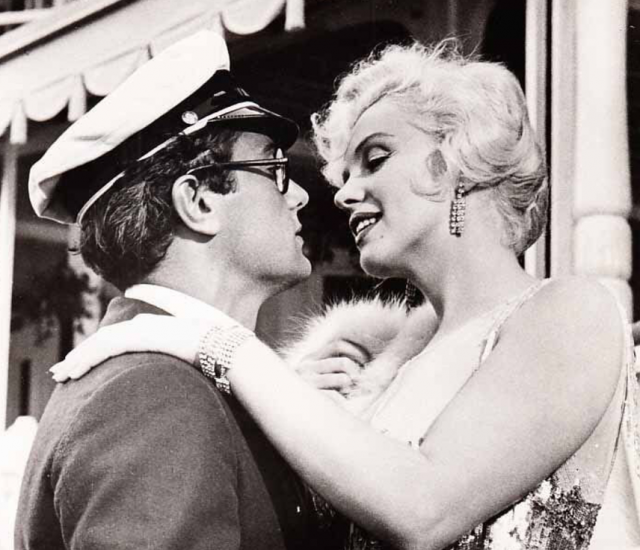
One of the greatest teaching experiences of my life was when my six-year-long relationship came to an abrupt end.
I had just turned 30, an age by which I’d imagined I’d be married and living in a house in the suburbs with two children and a chihuahua named Buddha. My vision included an herb garden in the backyard, an all-white kitchen, and a playroom for the kids.
I envisioned I’d settle down, as I craved the security of family life and everything I had associated with it. When my relationship ended, it felt like I failed, and I had to surrender the picture I’d held in my mind for so long. I was also left with the weight of so many emotions: anger, resentment, and an intense sense of loss. These snowballed and sat in my body like stones, causing me to put on 10 pounds and wake up in the middle of the night, anxious and unable to breathe.
Despite not wanting to let go of the idea of my ex and the life I sought to create with him, I wound up jumping into my next relationship within a few weeks of our breakup. I created an online profile the day after saying goodbye, and that weekend, I set up a date to meet someone for coffee.
My date, Davide, was from Italy. He was 6’4, with dark hair and an accent. We had great chemistry, and almost immediately, he confessed that he’d never fallen for someone so quickly; he called me bella, as we strolled through the Metropolitan museum, holding hands.
It appeared as though I had stumbled into something wonderful—a new person, a new relationship with someone who, on the surface, seemed to be everything I wanted. It felt light, like the first day of school. My ego told me that surely, I could make it work with someone else; it was my ex who had messed everything up, anyway.
However, as we continued to date, it became clear that Davide was far from my ideal match. We didn’t have a lot in common, and Davide was in the habit of complaining about everything. Every time he did, I thought of my ex, drawing comparisons to my old relationship, as if I were making a choice between the two men.
The truth was that I needed to heal my past relationship before I could move on. I had to recognize my role in ending the relationship, which was difficult, because it felt easier to blame everything on my ex. And yet, there was a small voice inside of me softly whispering that in order to heal, I’d have to look closer at myself and my negative patterns in dating.
Because as I continued to date, I attracted new partners, each one appearing bright and shiny out of the gate, but later, exhibiting the same qualities I disliked in my ex: fear of commitment, instability, and behavior that I deemed selfish.
The purpose of a relationship is to trigger everything inside of us that is unlike love. This means that even when we find someone who appears to be our perfect match, the very reason for our attraction is we want to be triggered, albeit unconsciously. Relationships are a playground for purification. Our partners will bring up, or mirror back to us, all of our fears: jealousy, insecurity, neediness, just to name a few. Whatever arises in our awareness does so to be looked at and transmuted.
If we end our relationships before owning our fears, without recognizing the part we played in their ending, we will attract new partners who will trigger us in the same way. In my case, I had a fear of commitment, which led me to choose a man who did not want the attachment of children or a life partner. It took quite a bit of self-reflection, meditating, and getting still to really listen to my inner-voice before I could recognize the role I’d played in choosing my ex, as well as in creating emotional distance while I was in the relationship.
We must be willing to look deep within ourselves. The evolution of our consciousness is about looking inward instead of blaming the other. And once we see the part we played, the next step is to release and forgive the person, which means undoing the fearful thoughts and judgments we have of the person, releasing him from our scripts, and shifting our perception.
Forgiveness, which happens in an instant of willingness, is an intense unraveling; it’s the undoing of a knot in our hearts. Some knots are tiny and easy to unravel, while others may feel more jumbled, particularly if we’ve spent years with someone. Any steps we take towards forgiveness results in the expansion of our consciousness, allowing us to welcome in new manifestations—partners who will not trigger old patterns.
Here are some steps that helped me to let go of my ex and forgive him.
Be willing to release the person.
Forgiveness is an act of surrender. In order to heal, we must release our relationships—both past and present—to the universe.
Affirm: I release [person’s name], and in doing so, I release myself.
My ego clung to everything that my ex did wrong so that I could perpetuate the story of myself as the victim, the one who was clearly free from blame. Ultimately, I had to choose my own desire for inner-peace in order to release the recurring thoughts I had about his fear of commitment. The thought loop about him only brought negative emotions, and so I had to be willing to release him, which really meant releasing my thoughts of him.
Open up to new ways of looking at things.
If we believe that we’re faultless and it’s just a matter of finding the right person, we will never receive the information necessary for our personal growth. That information can come from friends, books, or an intuitive thought.
Ask: How can I shift my perspective of this person? Of our relationship?
We don’t have to figure out how our relationships can be healed; the answer will come when we are open to receiving guidance. I was able to open up to the idea of forgiving my ex when I had reached a point where I could no longer deal with the sadness I felt on a daily basis as I replayed the story of losing him in my mind.
When I decided that I’d do anything to be happy again, I rediscovered Marianne Williamson’s book, A Return to Love, and when I reread it and applied it to my relationship, it shifted the perspective I had of my ex. I was able to recognize that he wasn’t trying to actively hurt me. He had just wanted something different out of life than I did.
Shift to gratitude.
It is helpful to focus on what we once loved about our past partners. Radical forgiveness is the recognition that no one can ever “do” anything to us. Our souls enter into karmic relationships for the purpose of bringing up our fears so they may be transmuted.
If we are grateful to each partner for showing us our own fears, we are better able to then shift our consciousness and enter into the next relationship from a place of vulnerability.
Our egos will tell us that pain is not our greatest teacher, but it is. Our relationships allow for us to open up to expansion. Our experiences with them provide for the contrast we need to make better decisions, grow, and learn. They are our greatest teachers. If we can thank them, even for the things they did that we deem as negative, we can recognize the lessons they taught us.
My ex reflected back to me my own fear of commitment and my inability to be vulnerable. I projected these fears onto him, which in turn, made him a great teacher in my life: someone who showed me where there was room in me to open up and let someone into my heart in a deeper way.
Be selective with memories.
We can choose to only remember loving thoughts of the person and let all of our memories of fear and anger fall away. The hurt we choose to carry keeps us from entering into new, healthy relationships. The negative energy in our bodies cause migraines, weight gain, and other ailments.
When we shift from thinking about how that person hurt us and choose to select our thoughts and memories with more discernment, we are able to free ourselves from the stories of how we were wronged; then, we can actively take responsibility for our happiness.
It was easy for me to lament about how my ex grew averse to the idea of marriage and children, however, the truth was that we spent six beautiful years together. He taught me how to relax, and he made me laugh. He was my best friend and a true partner. Really, our relationship, although it wasn’t for a lifetime, was a huge success. To move on, I reframed my experience, choosing a positive memory whenever a negative one arose.
Choose freedom.
Do a cord-cutting meditation. We can imagine the energy between us and others as filaments of light, and then snip them. In order to heal past relationships, we must choose freedom from pain and actively release the energetic handcuffs that are, quite literally, tying us to others.
After I completed these steps and released my ex, I called him to let him know that I forgave him and was no longer carrying any resentment. Immediately, he began to sob, as he told me that he had been feeling depressed due to the guilt of our breakup. My forgiving him allowed him to free himself; we had to let go of each other.
If we’re willing to recognize our patterns and shift our perceptions, we can let go of resentments, and we won’t attract partners similar to those from our past, or project our subconscious fears onto our new relationships. We can then enter into them at a higher level of consciousness, with more peace and a greater capacity to give and receive love. We can present our vulnerable, authentic selves instead of our wounded selves and grow our new relationships on a foundation of trust, opposed to fear.
Radical forgiveness makes room for the next step: the next person, the next relationship, the next experience. Marianne Williamson writes in The Gift of Change, “Every relationship is part of a divine curriculum designed by the Holy Spirit.”
We enter into relationships to learn, grow, and shift. As we outgrow relationships, we can release them from a place of ease and grace, and when we do that, we create space for new relationships to enter, and for love to really take root.
~
~
~
Author: Jessie Leon
Image: Wikimedia/Some Like it Hot
Editor: Taia Butler
 Share on bsky
Share on bsky



Read 1 comment and reply